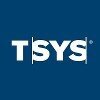Filter interviews by
Kotak Securities Equity Dealer Interview Questions and Answers
7 Interview questions
The process to take over client money involves proper documentation, client consent, and regulatory compliance.
Obtain written consent from the client to transfer their funds
Ensure all necessary documentation is completed accurately
Follow regulatory guidelines and compliance procedures
Transfer the funds securely to the designated account
Maintain records of the transaction for audit purposes
Preference shares are a type of security that has a fixed dividend and priority over common shares in terms of payment.
Preference shares receive fixed dividends before common shareholders
Preference shareholders have priority over common shareholders in terms of payment in case of liquidation
Preference shares may be convertible into common shares
Preference shares do not usually carry voting rights
Preference shares ...
Equity represents ownership in a company and can be in the form of stocks or shares.
Equity is a type of security that represents ownership in a company.
Investors who own equity in a company are known as shareholders.
Equity can be in the form of common stock or preferred stock.
Shareholders have voting rights and may receive dividends based on the company's performance.
The value of equity can fluctuate based on the ...
Shareholders are individuals or entities that own shares in a company, giving them ownership stake and voting rights.
Shareholders can be individuals, institutions, or other entities
They own shares of a company, representing ownership stake
Shareholders have voting rights in company decisions
They may receive dividends based on company performance
Shareholders can influence company policies and decisions through votin...
Repo rate is the rate at which the central bank lends money to commercial banks, while reverse repo rate is the rate at which the central bank borrows money from commercial banks.
Repo rate is currently at 4.00% in India as of September 2021.
Reverse repo rate is currently at 3.35% in India as of September 2021.
Repo rate is used by the central bank to control inflation and stimulate economic growth.
Reverse repo rate...
Put and call options are financial contracts that give the holder the right, but not the obligation, to buy or sell an asset at a specified price before a certain date.
Put option: Gives the holder the right to sell an asset at a specified price before a certain date.
Call option: Gives the holder the right to buy an asset at a specified price before a certain date.
Options are commonly used in financial markets for ...
It is not possible to accurately predict the performance of specific stocks in the next 5 days due to market volatility and various external factors.
Stock market performance is influenced by a wide range of factors including economic indicators, company news, geopolitical events, and investor sentiment.
Short-term stock predictions are highly speculative and can be influenced by unpredictable events.
It is recommend...
Kotak Securities Equity Dealer Interview Experiences
7 interviews found
I applied via Company Website and was interviewed in Apr 2024. There was 1 interview round.
(3 Questions)
- Q1. What is equity?
- Ans.
Equity represents ownership in a company and can be in the form of stocks or shares.
Equity is a type of security that represents ownership in a company.
Investors who own equity in a company are known as shareholders.
Equity can be in the form of common stock or preferred stock.
Shareholders have voting rights and may receive dividends based on the company's performance.
The value of equity can fluctuate based on the compa...
- Q2. Who are shareholders?
- Ans.
Shareholders are individuals or entities that own shares in a company, giving them ownership stake and voting rights.
Shareholders can be individuals, institutions, or other entities
They own shares of a company, representing ownership stake
Shareholders have voting rights in company decisions
They may receive dividends based on company performance
Shareholders can influence company policies and decisions through voting
- Q3. What are preference share
- Ans.
Preference shares are a type of security that has a fixed dividend and priority over common shares in terms of payment.
Preference shares receive fixed dividends before common shareholders
Preference shareholders have priority over common shareholders in terms of payment in case of liquidation
Preference shares may be convertible into common shares
Preference shares do not usually carry voting rights
Preference shares can b...
Interview Preparation Tips
I applied via Campus Placement
(1 Question)
- Q1. Q1. Self intro Q2. About derivatives Q3. Knowledge about stock market Q4. Current Affairs
(1 Question)
- Q1. Q1. Equity Derivatives
I applied via Referral and was interviewed in Aug 2023. There were 3 interview rounds.
(3 Questions)
- Q1. Regarding experience
- Q2. About financial products
- Q3. Regarding the long 9 month gap in my career
- Ans.
Medical related reasons
(3 Questions)
- Q1. What is put option call option
- Ans.
Put and call options are financial contracts that give the holder the right, but not the obligation, to buy or sell an asset at a specified price before a certain date.
Put option: Gives the holder the right to sell an asset at a specified price before a certain date.
Call option: Gives the holder the right to buy an asset at a specified price before a certain date.
Options are commonly used in financial markets for hedgi...
- Q2. About derivatives
- Q3. About the role in my previous company
(4 Questions)
- Q1. Current repo rate and reverse repo rate
- Ans.
Repo rate is the rate at which the central bank lends money to commercial banks, while reverse repo rate is the rate at which the central bank borrows money from commercial banks.
Repo rate is currently at 4.00% in India as of September 2021.
Reverse repo rate is currently at 3.35% in India as of September 2021.
Repo rate is used by the central bank to control inflation and stimulate economic growth.
Reverse repo rate is u...
- Q2. Why you want this profile
- Ans.
I am drawn to the Equity Dealer role for its dynamic nature, analytical challenges, and the opportunity to impact financial markets.
Passion for Financial Markets: I have always been fascinated by how markets operate and the factors that influence stock prices, which drives my interest in this role.
Analytical Skills: My background in finance has equipped me with strong analytical skills, allowing me to assess market tre...
- Q3. Fundamental and technical analysis analysis regarding questions
- Q4. Which are the stocks I belive to perform in comming 5 days
- Ans.
It is not possible to accurately predict the performance of specific stocks in the next 5 days due to market volatility and various external factors.
Stock market performance is influenced by a wide range of factors including economic indicators, company news, geopolitical events, and investor sentiment.
Short-term stock predictions are highly speculative and can be influenced by unpredictable events.
It is recommended to...
Interview Preparation Tips
- NISM
(1 Question)
- Q1. What is the process to take over client money
- Ans.
The process to take over client money involves proper documentation, client consent, and regulatory compliance.
Obtain written consent from the client to transfer their funds
Ensure all necessary documentation is completed accurately
Follow regulatory guidelines and compliance procedures
Transfer the funds securely to the designated account
Maintain records of the transaction for audit purposes
Interview Preparation Tips
I appeared for an interview in Jan 2023.

(1 Question)
- Q1. Why should we hire you
- Ans.
I bring a unique blend of analytical skills, market knowledge, and a passion for trading that aligns perfectly with your team's goals.
Strong analytical skills: I have a proven track record of analyzing market trends and making data-driven decisions.
Experience in trading: I have successfully managed a portfolio that outperformed the market by 15% over the last year.
Effective communication: I can clearly articulate compl...
(1 Question)
- Q1. Tell me about your self
- Ans.
As an Equity Dealer, I specialize in trading stocks and managing investment portfolios to maximize returns for clients.
Market Analysis: I conduct thorough market research and analysis to identify trends and opportunities, such as recognizing a bullish trend in tech stocks.
Client Relationship Management: I build and maintain strong relationships with clients, ensuring their investment goals are met, like advising a clie...
Interview Preparation Tips
I applied via Naukri.com and was interviewed before Dec 2022. There were 2 interview rounds.

(3 Questions)
- Q1. Equity and derivatives related basic questions
- Q2. Technical charts basics
- Q3. Confidence and attitude checking questions
Interview Preparation Tips
- Index
- Future and options
- Equity
- Fundamentals
- Technical
I applied via Job Portal and was interviewed before May 2023. There was 1 interview round.
(1 Question)
- Q1. Basic market knowledge
Top trending discussions






Interview questions from similar companies


(2 Questions)
- Q1. Introducing yourself only
- Q2. Nism certificate exam must be cleared
(2 Questions)
- Q1. Casually related to market
- Q2. And about nism certification

I applied via Naukri.com and was interviewed in May 2022. There was 1 interview round.
(1 Question)
- Q1. 1.Tell about yourself?
- Ans.
I am an experienced Equity Dealer with a strong background in financial markets and trading.
I have been working as an Equity Dealer for the past 5 years.
I have a deep understanding of stock markets, investment strategies, and risk management.
I am skilled in executing trades, analyzing market trends, and providing investment advice to clients.
I have a track record of achieving high returns for clients and maintaining st...
Interview Preparation Tips

(2 Questions)
- Q1. Related questions about cv
- Q2. Related questions about securities markets
Kotak Securities Interview FAQs
Tell us how to improve this page.
Kotak Securities Interviews By Designations
- Kotak Securities Assistant Manager Interview Questions
- Kotak Securities Deputy Manager Interview Questions
- Kotak Securities Equity Dealer Interview Questions
- Kotak Securities Relationship Manager Interview Questions
- Kotak Securities Manager Interview Questions
- Kotak Securities Key Account Manager Interview Questions
- Kotak Securities Branch Manager Interview Questions
- Kotak Securities HR Executive Interview Questions
- Show more
Interview Questions for Popular Designations
Overall Interview Experience Rating
based on 8 interview experiences
Difficulty level
Duration
Interview Questions from Similar Companies
Kotak Securities Equity Dealer Reviews and Ratings
based on 32 reviews
Rating in categories
|
Assistant Manager
2.2k
salaries
| ₹2 L/yr - ₹5 L/yr |
|
Deputy Manager
1.7k
salaries
| ₹2.6 L/yr - ₹8 L/yr |
|
Manager
552
salaries
| ₹5 L/yr - ₹11 L/yr |
|
Senior Manager
316
salaries
| ₹11.4 L/yr - ₹21 L/yr |
|
Associate Vice President
202
salaries
| ₹19.1 L/yr - ₹34 L/yr |

HDFC Securities

Upstox

Axis Direct

ICICI Securities
- Home >
- Interviews >
- Kotak Securities Interview Questions

















